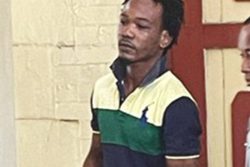LONDON/NEW YORK, (Reuters) – A Swiss criminal investigation into corruption at the world soccer body FIFA has hit some roadblocks, according to U.S. and European sources familiar with the matter.
Barriers to progress include reduced levels of collaboration with U.S. authorities. who are conducting a parallel probe that is much more advanced, and an increasing acknowledgment by prosecutors in Bern that their powers under Swiss law are constrained in this kind of case, these people said.
The faltering communication across the Atlantic and legal limits on the Swiss probe could mean the combined investigations will not have as far-ranging an impact as some FIFA critics had hoped. It could also take some of the pressure off of FIFA for the more significant reforms sought by the organization’s sponsors and others.
At a meeting with FIFA officials on Thursday, major sponsors pushed for such reforms. In a statement after the discussions in Zurich the sponsors – including Coca Cola Co. and Budweiser brewer AB InBev – said that they “reiterated our expectations for robust reform.”
A spokeswoman for the U.S. prosecutors’ office in Brooklyn, which is handling the U.S. case, declined to comment. A spokesman in the Swiss Attorney General’s office also said he wouldn’t comment.
TAPERED OFF
The close coordination between the U.S. and Swiss authorities that led to a dramatic early morning raid at a luxury Zurich hotel to arrest seven FIFA executives on May 27 has not been sustained, the sources said.
The arrests came as the U.S. indicted nine soccer officials and five executives, charging them with racketeering, money laundering and wire fraud for orchestrating multi-million dollar bribery schemes over 24 years. At the same time the Swiss launched an investigation into whether corruption was a factor in Russia and Qatar’s successful bids to get the hosting rights for the 2018 and 2022 World Cups.
While U.S. and Swiss investigators have exchanged information at a working level, high level contacts between U.S. and Swiss authorities about the soccer probe are tapering off, the sources said. To use such information in a prosecution it usually needs to be obtained through more formal legal mechanisms, in particular through requests under a mutual legal assistance treaty (MLAT) between the U.S. and Switzerland..
U.S. investigators initially sent one limited request for evidence under the MLAT, but haven’t sent any since, the U.S. and European sources said.
The Swiss have mountains of files to sift through. A couple of months ago, they subpoenaed and received nine terabytes of data from the offices of top FIFA executives, including outgoing President Sepp Blatter. They have access to virtually the entire contents of the office of Blatter’s top deputy, Secretary General Jerome Valcke, a source familiar with the matter said.
The U.S. has also refrained from asking the Swiss for a copy of a report produced by former U.S. federal prosecutor Michael Garcia who FIFA hired to do an internal investigation. FIFA handed Swiss authorities the report in November.
For their part, Swiss authorities have not sent the United States a single MLAT request to get access to any evidence the Americans collected over the course of a four-and-a-half-year investigation into FIFA and its affiliates, sources in both the United States and Europe confirmed.
HAMSTRUNG
Less than three months into the Swiss investigation of the Russia and Qatar awards, Swiss authorities believe they may be hampered by their own national law from taking strong action against FIFA itself, one of the sources said.
Switzerland’s commercial bribery statute only applies to corporations but not to entities like FIFA which are organized and registered as associations. That makes it much more difficult for prosecutors to address any institutional corruption they find or to demand reforms at FIFA, according to one European source.
In contrast, the FBI and U.S. prosecutors have used expansive U.S. anti-racketeering laws to build their case.
Swiss investigators also don’t feel they have full support from top Swiss politicians, particularly ahead of parliamentary elections in October, one of the sources said. While the FIFA scandal has been an embarrassment for the Swiss, the organization has traditionally had some influence with the nation’s political establishment.
They are hoping that a visit to Zurich by U.S. Attorney General Loretta Lynch in mid-September for an international prosecutors’ conference will help to bolster support for the Swiss investigation and improve collaboration, one of the sources said.
However, already investigators are starting to discount the possibility of tackling some areas.
For example, the sources said that American and Swiss criminal investigations are unlikely to lead to any threat to Russia retaining the hosting rights for the 2018 World Cup.
And Swiss investigators are skeptical that they could, or should, try to build cases against Blatter or Valcke, one of the sources said.
Michael Lauber, Switzerland’s Attorney General, said at a news conference in June his office is investigating money laundering and “disloyal management” at FIFA. Under Swiss law, managers can be held criminally liable if they violate their duties or cause or permit damage to an entity.
If Swiss investigators can find evidence FIFA funds for development grants to regional and local soccer bodies around the world were siphoned off for personal gain, then Swiss prosecutors may be able to build criminal cases against individuals.









